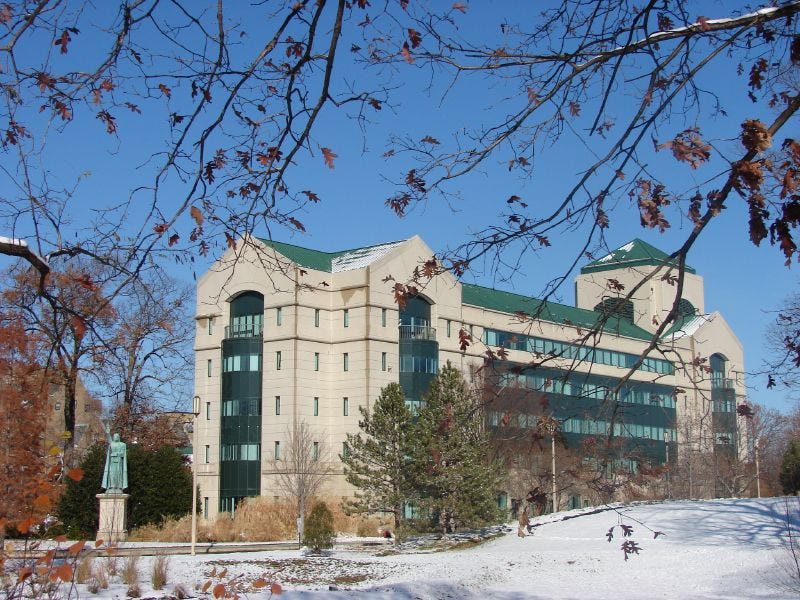The prefect of the Vatican’s Dicastery for Communications has told reporters that confidential working documents from the ongoing synod on synodality were posted to an unsecured cloud server because some participants struggled with a login system that required a username and password.
Speaking at a press conference Oct. 14, Paulo Ruffini told journalists he wanted to offer a “clarification” on press reports that synodal records, including rosters of participants and their working group assignments, as well as a reports filed by working groups at the conclusion of the synod’s first segment of discussion, had been posted to an unsecured server, despite the snoyd’s organizing secretariat insisting on confidentiality around the meetings.
“What happened?” Ruffini opened the press conference by asking. “To transparently explain what happened, the General Secretariat of the Synod created a cloud to share some documents with the members of the synod.”
Access to the cloud server initially required a username and password, Ruffini explained, “but since some members for various reasons had not been able to access the cloud, the General Secretariat decided to create a link open to those who knew the address, so that they could directly access the documents in the cloud.”
The Pillar first reported on Oct. 13 that records from the Vatican’s October synod on synodality had been posted to an unsecured cloud server which could be accessed by any person with the correct URL address; those documents were updated daily and included the table by table reports from language-based discussion groups.
While the synodal working group reports make it possible to identify the members of individual working groups correlated to the reports they produced, The Pillar has elected not to do so publicly, following Pope Francis’ request for “a certain restraint” in press coverage of the synodal process.
Speaking to media on Saturday, Ruffini confirmed that the site had been taken down, and login requirements reinstated.
“It was decided to reinstitute the username and password requirement and to help those who had this difficulty through some facilitators who will be present at a help desk, at the individual tables, and in the lobby of the Paul VI Hall,” he said. “That’s it.”
Asked if the previously restricted material would now be made public, in the light of the data breach and the ability of publications like The Pillar to have access to the synodal documents, Ruffini said no, and defended the unprecedented decision to restrict media coverage and access to the synodal process and participants.
“These are not, as you know, documents that we could call ‘classified,’” said Ruffini, “but confidential documents, in order, precisely, to protect the space of common discernment as opposed to that of the exposure of individual discernment or that of each individual small group.”
“The synod was convened for exactly this purpose,” the communications prefect said. “Praying and conversing together, entrusting ourselves to the Holy Spirit, in the discernment that together we are called to make. That is all.”
“As I said before,” Ruffini said in response to questions, “there is nothing secret about it. But the desire of the General Secretariat of the Synod is to maintain confidentiality on the individual reports of each small group. Not because it is a classified document, but because this would somehow turn our meeting, praying and praying for discernment, into something else, into a kind of public convention — or the pope has said other times, into a parliament.”
In a break from custom, Pope Francis has emphasized that participants at the 2023 synod should maintain confidentiality about the proceedings.
In previous synods of bishops, including a 2015 synod of bishops on the family, working group reports were released publicly by the Vatican. Bishops were also permitted to release publicly the texts of their speeches in previous synods, and to give media interviews.
The Pillar was alerted to the unsecured server on Oct. 12, and immediately notified the Vatican’s Dicastery for Communications, while also requesting comment. No response or comment was received.
Metadata from the synod documents indicated that the synodal texts were saved on computers assigned to several staff members of the Vatican’s Permanent Secretariat for the Synod, the office charged with organizing the month-long synod on synodality.
The Pillar also confirmed that a submission of one working group report — filed as a photo — included the hand-written signature of the bishop who filed it.
The working group reports are significant because they will form the basis for the interim relatio — a report to be produced by the end of this month on the synodal discussions, which will shape discussion at the synodal gathering’s next month-long meeting, in October 2024.




